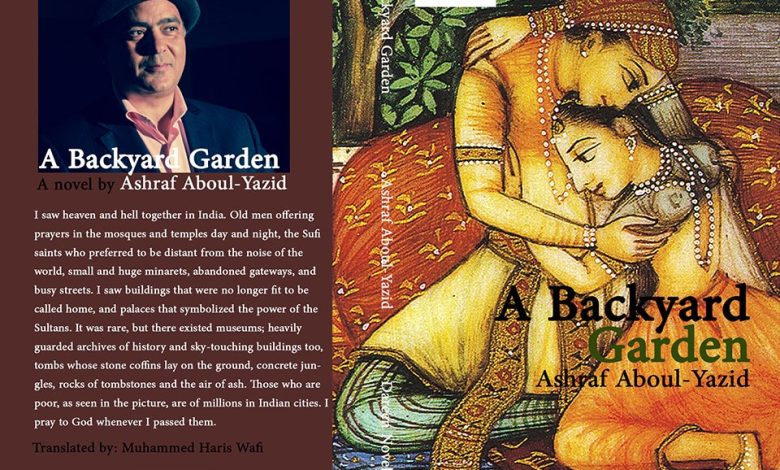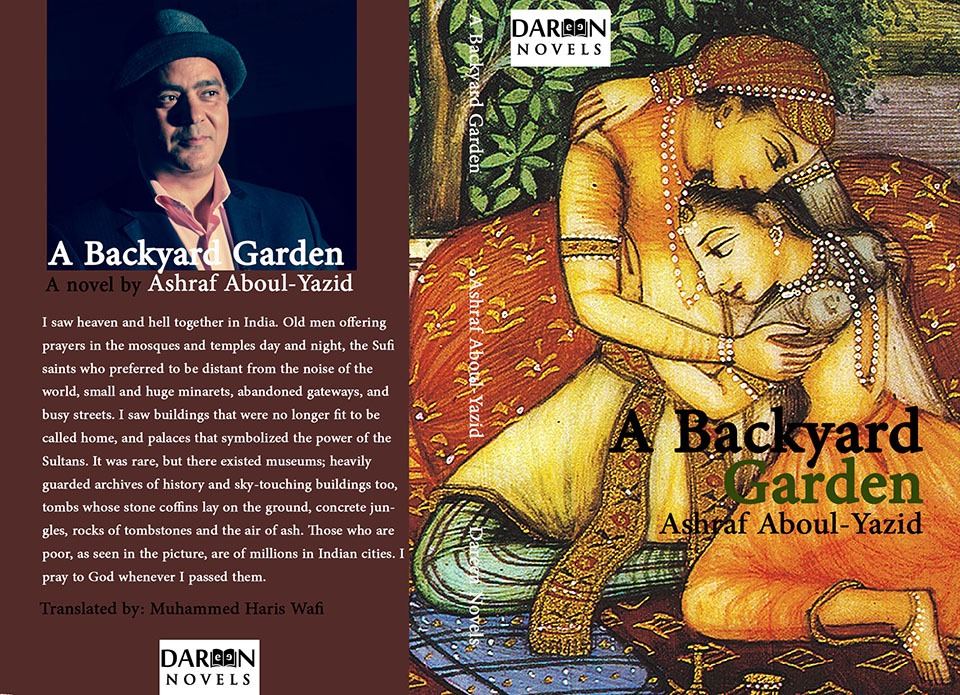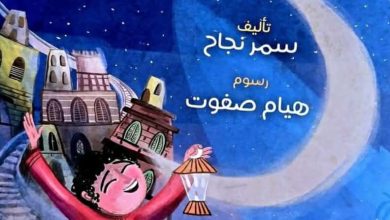

Ashraf Aboul-Yazid’s A Backyard Garden is a profoundly human, polyphonic novel set in contemporary Egypt. It weaves together the lives of individuals in the village of Kafr El-Sarai, focusing particularly on the enigmatic figure of Sayyid Kamal—a hero of the Egyptian independence movement who retreats from public life to live among his people.
Ashraf Aboul-Yazid, also known by his pen name Ashraf Dali, is a renowned Egyptian journalist, poet, novelist, and translator whose work spans over three decades across the Arab world and beyond. Born in Egypt in 1963, Aboul-Yazid is known for blending poetic sensitivity with intellectual depth, often exploring themes of exile, identity, language, and cultural dialogue. He has authored over 40 books of poetry, fiction, and travel literature, and his works have been translated into several languages. As a literary writer, he has held prominent editorial roles, including editor-in-chief of the Silk Road Literature Series. He has been awarded numerous international honors, such as the Manhae Prize for Literature in South Korea and the Arab Journalism Award in Dubai.
In Aboul-Yazid’s A Backyard Garden, the narrative unfolds through multiple perspectives, oscillating between lyrical introspection, satirical realism, and intimate glimpses into lives fractured by modernity, nostalgia, and social change. The novel blends rich cultural detail, personal memory, political commentary, and philosophical musing into an ambitious, poetic tapestry.

Sayyid Kamal is introduced as a noble yet withdrawn figure, a symbol of post-revolutionary Egyptian idealism. Though once a prominent intellectual and government official, Kamal retreats from public life to devote himself to education and his rural estate. His kindness, generosity, and emotional loneliness (having lost his wife and remained childless) cast him as a tragic but saintly figure.
“The palace looked like it was created off the imageries from The Arabian Nights… a paradise without people cannot be trampled down” (p. 8- 9). This refrain encapsulates the central theme of the novel: the illusion of utopia without human warmth and the decay of social structures that result from broken communal bonds.
The sudden disappearance of Sayyid Kamal during the festive Eid sends tremors through the tightly knit village. This section, “The autumn of Absence,” is a masterful evocation of communal anxiety, as villagers—particularly the wise Imam Haj Sammnoudi—search for meaning in the absence of their benefactor.
“Their plight is sorrowful. You have the salary from the Ministry… but who shelters those poor if not for Mr. Kamal?” (p. 15)
.Aboul-Yazid captures not only the socio-economic dependence of the villagers on Kamal, but also their emotional and symbolic connection to him.
Majdi, a humble agricultural engineer and lover of books, becomes a central character in the novel’s symbolic economy of love and duty. His devotion to the garden and his passion for Kamal’s niece, Camelia, are conveyed through botanical metaphors.
“He saw roses as bodies of humans… They even look up at the clouds above their heads and see nothing” (p. 36–37)
This poetic passage expresses the disconnect between spiritual beauty (embodied by the roses) and materialistic indifference (exemplified by the villagers). Majdi’s role as a steward of both the garden and Kamal’s legacy underlines the novel’s core ethic: silent service to beauty and humanity.
A powerful subplot involves Abdul Hafeez, Haj Sammnoudi’s son, who falls prey to capitalist ambition and moral compromise. Pressured by his Gulf sponsor Abu Khalid to help acquire Kamal’s estate for commercial development, Hafeez marries a Saudi woman (Raja) in a transactional relationship that leaves him estranged from his beloved wife Hanan and his children.
“The lamb thighs reminded him of his dear Hanan’s arms… He wanted to puke” (p. 63)
.This visceral scene during the wedding banquet with Raja encapsulates Hafeez’s inner torment. It is a deeply affecting portrait of alienation in the era of globalization and hypercapitalism.
Camelia, well-versed in Indian philosophy, yoga, and Sanskrit literature, challenges patriarchal and local norms. Her relationship with Majdi is both spiritual and sensual, culminating in an unforgettable wedding night.
“Camelia started removing her clothes, one at a time, as per the illustrations in the book… ‘Tell me, Majdi, from where do we begin?’” (p. 105)
.Their union, consecrated by the Kama Sutra and not local customs, stands as a metaphor for cultural synthesis and personal emancipation.
The novel’s climax arrives with the confrontation between Sayyid Kamal and Abu Khalid, the real estate developer seeking to turn El Sarai into a luxury resort.
“This palace is my life. I shall not make any bargain upon it” (p. 103)
Sayyid Kamal’s resistance becomes a final, resounding stand against the commodification of heritage and identity. The palace, like the garden, symbolizes rootedness, memory, and the soul of Egypt.
Translated with elegance by Muhammad Haris Wafi, Aboul-Yazid’s novel is lyrical, philosophical, and deeply evocative. The seasons—Autumn of Absence, Winter of Love, Spring of Journey, and Summer of Return—mirror the emotional and narrative rhythms of the novel. The garden is not only a physical space but a metaphor for inner cultivation, and El Sarai stands for the contested heart of the Egyptian soul.
A Backyard Garden is not merely a nostalgic remembrance of rural life. It is a profound allegory about the erosion of values in the face of modernity, the commodification of land and love, and the enduring power of beauty, loyalty, and memory.
The novel resonates deeply with readers concerned about cultural loss, economic injustice, and the fragile spaces where love, art, and resistance intersect.




